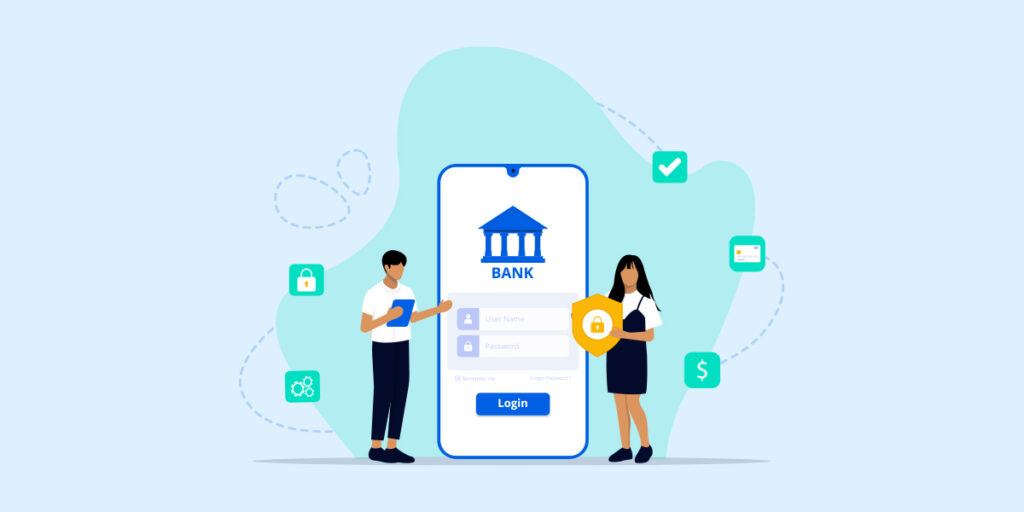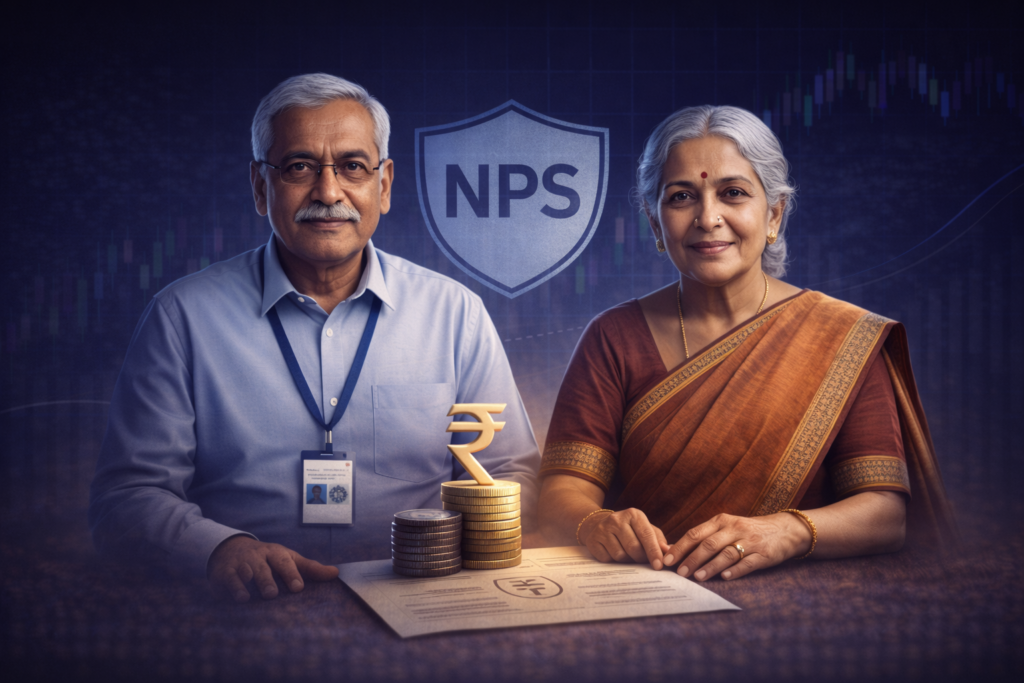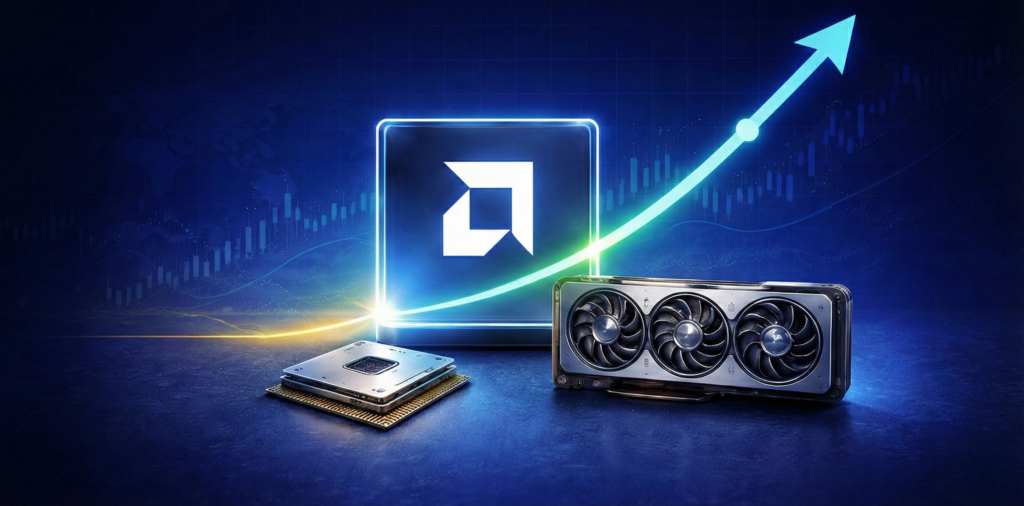Before you invest in shares, mutual funds, or ETFs, you need a demat account. It acts as a digital locker for your investments and is essential for trading on Indian stock exchanges. While most platforms offer quick signup, understanding the steps involved helps you avoid delays and make informed choices.
In this post, we’ll explain how you can open a demat account in India, what to expect during the process, and how to choose the right broker based on your needs. Read along!
Understanding What a Demat Account Is
A dematerialised/demat account is where your shares and other financial securities are held in electronic form. Instead of holding physical certificates, your stocks, bonds, mutual funds, and ETFs (exchange-traded funds) are stored securely and digitally online.
How Can I Open a Demat Account in India?
You can open a demat account both online and offline through a SEBI-registered Depository Participant (DP) — usually a bank, broker, or financial institution. Here’s the general step-by-step process:
How Can I Open a Demat Account Online?
- Choose a SEBI-registered depository participant (DP): Visit their official website or branch.
- Fill the Account Opening Form: Provide your name, contact details, PAN, and bank account information.
- Register Using Mobile and Email: Enter the one-time passwords (OTPS) sent to your registered mobile number and email.
- Submit KYC Documents: Upload proof of identity (PAN, Aadhaar) and proof of address.
- Complete the e-KYC Process: Use Aadhaar-based OTP verification or in-person video verification.
- Sign the Agreement: Digitally sign the document authorising the DP to open and manage the account.
- Receive Your Account Details: Once verified, you will receive your 16-digit demat account number, login credentials, and a welcome letter.
How Can I Create a Demat Account With a Broker?
To create a demat account, you need to go through a SEBI-registered depository participant (DP). A DP can be a bank, stockbroker, or financial institution authorised to open and manage demat accounts.
Here’s how you can get started:
1. Choose a SEBI-registered DP
Choose a broker or financial institution that is officially registered with the Securities and Exchange Board of India (SEBI). You can find the list of registered DPs on SEBI’s official website. Also, always verify registration before proceeding.
2. Compare Brokerage Firms
All DPs offer the basic service of opening and maintaining demat accounts, but charges and features vary. Compare:
- Account opening and annual maintenance charges
- Brokerage fees per trade
- Customer support quality
- Mobile app or platform ease of use
- Additional features like market research, alerts, and fund transfer tools
3. Complete the Account Opening Process
Once you’ve selected your DP:
- Fill out the application form (available on their app or website)
- Upload PAN card, Aadhaar, bank proof, and photo
- Complete e-KYC (online identity and address verification)
- Sign the agreement digitally
- Link your trading account (most brokers offer a bundled service)
Once verified, your demat account is activated, usually within 1– 2 working days.
Types of Demat Accounts You Can Open
Different types of demat accounts are designed to suit different investor profiles. Here are the three main types:
1. Regular Demat Account
This is the standard account for resident Indian investors. It allows you to hold shares, bonds, mutual funds, and ETFs in electronic form. You can buy and sell securities through your linked trading account.
2. Repatriable Demat Account (For NRIs)
If you’re a Non-Resident Indian (NRI) and want to invest in Indian markets and transfer funds abroad, you’ll need a repatriable demat account. It must be linked to an NRE (Non-Resident External) bank account. This allows both investment and repatriation of gains.
3. Non-Repatriable Demat Account (For NRIs)
This account is also for NRIS, but it is linked to an NRO (Non-Resident Ordinary) bank account. You can invest in Indian markets, but funds cannot be freely transferred abroad. Suitable for NRIs with income sources in India.
Documents Required to Open a Demat Account
When you apply for a demat account, you must complete the Know Your Customer (KYC) verification. This step confirms your identity and address, as required by SEBI regulations. You need to submit the following:
1. Proof of Identity (Any one of the following)
These documents confirm who you are:
- Passport
- Driving licence
- Voter ID
- A photo ID card issued by a central or state government department
- Bank verification letter with your photograph
- ID card issued by professional bodies such as:
- ICAI (Chartered Accountants)
- ICWAI (Cost Accountants)
- ICSI (Company Secretaries)
- The Bar Council
2. Proof of Address (Any one of the following)
These documents confirm where you live:
- Aadhaar card
- Passport
- Driving licence
- Voter ID
- NREGA job card (issued under rural employment schemes)
- A letter from the National Population Register with your details
If none of these documents reflect your current address, you can submit one of the documents listed below:
- Utility bill (electricity, water, piped gas, post-paid mobile, landline)
- The latest municipal or property tax receipt
- Pension or family pension order issued by a government department or PSU, if it includes your address
- A letter of accommodation allotment from your employer
- Registered leave and license agreement with your employer for official housing
Important: If you submit a temporary proof of address, such as a utility bill, you must provide an updated document with your current address within three months.
Charges Involved in Opening and Maintaining a Demat Account
Before opening a demat account, it’s essential to understand the types of charges you may incur, not just during account setup, but also while using and maintaining it. These charges vary across brokers and depend on the services they provide.
Some of the most common charges include:
1. Account Opening Charges
Some brokers offer free demat account opening, especially online platforms and discount brokers. Others may charge a small one-time fee. If you’re opening a 3-in-1 account (savings, trading, and demat) with a bank, this fee may be waived.
While the setup may look free, always check if there are any one-time processing fees, stamp duty, or taxes added separately.
2. Annual Maintenance Charges (AMC)
AMC is a recurring fee you pay to keep the account active. This is usually charged on a yearly or quarterly basis.
- Some brokers offer zero AMC for the first year.
- Others charge based on your account type:
- If your holdings are below ₹4 lakh and you have a Basic Services Demat Account (BSDA), the AMC may be waived.
- For holdings between ₹4 lakh and ₹10 lakh, a nominal annual fee (e.g., ₹100 + GST) is charged.
- For regular (non-BSDA) accounts, AMCs can range from ₹250 to ₹1000+ annually, depending on the broker.
3. Transaction Charges
Every time you sell shares, the depository (NSDL or CDSL) and your broker charge a fee for processing that transaction. This is different from brokerage.
- Charges are usually ₹10 to ₹25 per transaction.
- These apply only when you sell, not when you buy.
- Charges may vary slightly based on gender or account type, as seen in some broker pricing models.
This fee is often split between:
- Depository Participant (DP) charges
- Depository charges (NSDL or CDSL)
4. Pledge and Unpledge Charges
If you pledge your shares as collateral to take a loan or for margin trading, you’ll be charged:
- ₹10–₹20 + GST per request, depending on the broker and type of pledge
- Charges apply both during pledge creation and removal.
5. Dematerialisation and Rematerialisation Charges
If you want to convert physical share certificates to digital (demat) or vice versa (remat), charges apply:
- Demat: ₹50 to ₹100 per certificate
- Remat: ₹50 and actual handling charges from the depository
Tips Before Opening a Demat Account
Opening a demat account is your first step toward investing in the stock market. But before you sign up, take time to evaluate a few important factors, such as:
1. Choose the Right Platform
Not all DPs—like banks or brokerage firms—offer the same experience. Go beyond the popular names and compare:
- Account opening and annual charges: Some platforms offer zero opening fees but charge higher yearly fees. Others may have bundled plans. Check the total cost, not just the entry fee.
- Transaction charges: These are fees for every trade you make. Look at both buying and selling costs. For frequent traders, this can impact returns.
- Brokerage structure: Determine if they charge a per-trade fee or a flat monthly fee. For beginners, flat-fee models can be more predictable.
2. Evaluate the User Interface and Mobile App
A complex platform can be frustrating, especially if you’re new to investing. Before opening the account:
- Check reviews of their website and mobile app
- See if the dashboard shows real-time holdings, P&L (profit and loss), and easy order tracking
- Try demo versions if available, to check if navigation is smooth and error-free
3. Check Customer Support Responsiveness
Good customer support is essential, especially during trade failures, refunds, or login issues. Before signing up:
- Test how easy it is to reach their support team
- Read real user reviews about complaint handling speed
- Avoid platforms where responses are slow or generic
4. Consider Long-Term Compatibility
Ask yourself:
- Does the platform support other investment types, such as mutual funds, bonds, or IPOS?
- Can you easily transfer shares if you switch to another broker?
- Is there any lock-in or exit fee?
These points matter if you plan to grow your portfolio over time.
5. Look for Additional Features (But Only If You Need Them)
Some platforms offer free research reports, stock screeners, or integration with mutual funds. These tools can be useful, but only if you plan to use them. Don’t let extra features distract from the basics—reliable execution and smooth account management.
FAQs
How can I open a demat account for the first time?
Choose a Depository Participant (DP), such as a bank or stockbroker. Then, visit their website or app, fill out the application form, complete e-KYC (online verification using your Aadhaar and PAN), upload the required documents, and sign digitally. Most platforms let you complete the entire process online.
What documents are required to open a demat account?
You’ll need:
- PAN card
- Aadhaar card or any government-issued ID (for identity and address proof)
- Bank account proof (cancelled cheque or statement)
- Passport-size photo
If you plan to trade in derivatives (like futures or options), you must also provide proof of income, such as salary slips or ITR.
Can I open a demat account online without visiting a branch?
Yes, most brokers and banks offer full online account opening. You can apply, upload documents, complete e-KYC, and sign agreements digitally – no physical visit is required.
How long does it take to open a demat account?
If you apply online and complete e-KYC successfully, your account can be opened within a few hours. Offline applications or delays in verification may take 2– 5 business days.
Do I need a trading account in addition to a demat account?
Yes, if you want to buy or sell shares. A demat account holds the shares you own in digital format. A trading account is used to place orders in the stock market. You need both to actively trade in stocks.
Disclaimer: Investments in securities markets are subject to market risks. Read all the related documents carefully before investing. The securities quoted are exemplary and are not recommended.























